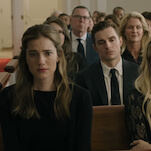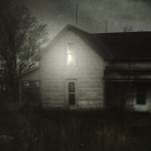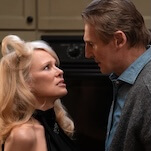The Son

More than any other contemporary filmmakers, Belgian brothers Jean-Pierre and Luc Dardenne understand the ways in which work gives tenor and meaning to people's lives, and how the mundane routines of everyday life set the limits of their world. In their last film, 2000's Palme D'Or-winning Rosetta, these routines form the distinct shape of a cage, with the title heroine clawing ferociously to survive in a city with dire unemployment rates. Former documentarians, the Dardennes followed her around with a handheld camera pinned to her back, getting about as close to her visceral experiences as possible without burrowing into her skull. If anything, this intense first-person technique is employed even more rigorously for The Son, a searing Christian allegory about sin, redemption, forgiveness, and, not least of all, carpentry. After the silent, white-on-black credits, the Dardennes rudely plop the audience into the organized chaos of Olivier Gourmet's workshop, as his juvenile apprentices work up a racket with hammers, buzzsaws, and welding torches. A lesson in how to bury exposition, the film proceeds for a full 30 minutes before the dramatic core of the story spills out in casual conversation; until then, it simply lays out Gourmet's daily life and offers something close to a crash course in his trade. Gourmet's insistence on precision and order gives him a quiet command over his young charges, who come to him as part of a reform program designed to usher them from delinquency to responsible adulthood. But his stable life is upended when a sullen new applicant (Morgan Marinne) turns out to be the boy who murdered his only son five years earlier, a tragedy that ended Gourmet's marriage. Though the Dardennes' style sometimes limits his expression to his ears, neck, and shoulder blades, Gourmet's tormented, internalized performance sets the film on edge: Not only does the audience not know what he's going to do, but he doesn't seem to know, either. From the moment he recognizes Marinne, Gourmet's interaction with the boy takes on an agonizing intensity, yet he's bound up by conflicting impulses, with anger and bloodlust mingling alongside curiosity, compassion, and an unexpectedly tender fatherly connection. The Dardennes sustain that tension through a masterful closing drive that resembles the final third of In The Bedroom, only without the same dreadful inevitability. In the process, they also offer a few helpful lessons on back support, proper beam storage, and distinguishing one type of wood grain from another.







































